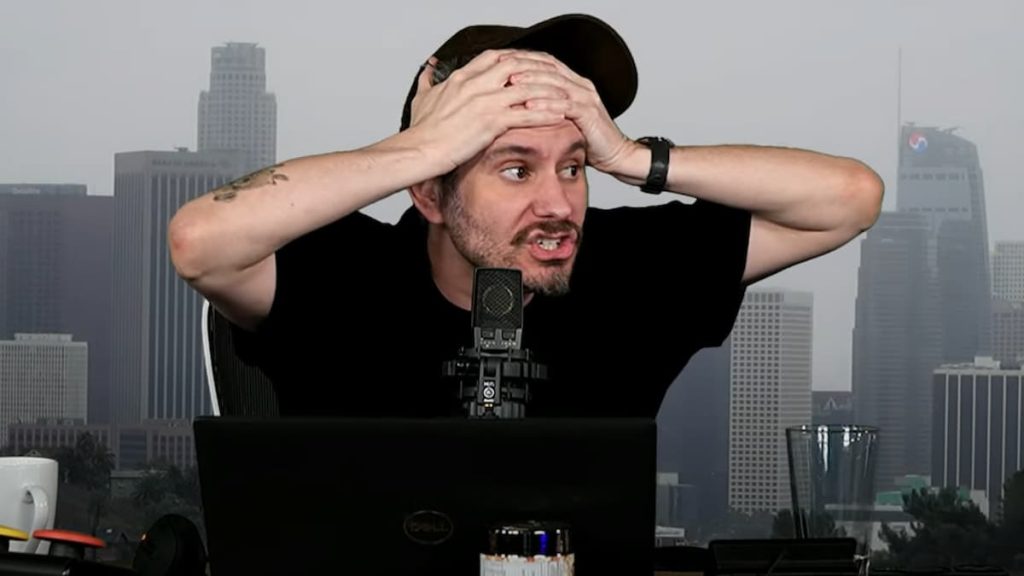The Banning of H3H3Productions
On March 5, Ethan Klein, co-founder of H3H3Productions, announced during a live stream of the H3 Podcast that his Twitch account had been banned for 30 days. The reason, according to Twitch, was for "encouraging or glorifying extreme violence." This unexpected ban came as a shock to Klein and his audience, especially given the circumstances. The offending content was a re-run of the "Hasan Content Nuke" video, which Klein had previously created to expose what he perceived as extreme political views and behavior by fellow content creator, Hasan Piker.
Klein’s Reaction to the Ban
Ethan Klein, known for his candid and often passionate reactions, did not hold back in expressing his frustration during the podcast. He showed the Twitch ban notice on camera, highlighting the specific violations listed, including the encouragement to burn down police stations and physically attack people at protests, as well as an explicit statement that a group of people should be killed. Klein was quick to point out that these statements were made by Hasan Piker himself, not by Klein in the video. "I didn’t even say [anything]," Klein argued, expressing his surprise that Twitch would "be this pathetic." The incident has reignited the ongoing tension between the two creators, both of whom have had recent run-ins with the platform’s policies.
The Hasan Content Nuke Video
The "Hasan Content Nuke" video, which remains available on the H3H3Productions YouTube channel and has garnered over three million views, was a detailed critique of Hasan Piker’s behavior on Twitch. Klein and his team meticulously compiled clips and statements from Piker’s streams to highlight what they saw as problematic content. The video aimed to draw attention to Piker’s alleged encouragement of violence and extreme political views, which Klein felt were dangerous and contrary to Twitch’s community guidelines. Despite the video’s popularity and the widespread discussion it sparked, it seems that Twitch’s decision to ban H3H3Productions was based on the content of the video itself, rather than its intent or context.
The Ongoing Dissent Between Klein and Piker
Ethan Klein and Hasan Piker have been at odds for quite some time. Their conflict has been well-documented, with both sides regularly engaging in public disputes through their respective platforms. The "Content Nuke" video was a culmination of these tensions, and its re-run on Twitch has now led to H3H3Productions being temporarily removed from the platform. Klein’s argument that he was merely highlighting Piker’s behavior, which Twitch itself allows, has added a layer of complexity to the situation. The ban has been seen by many as a reflection of what Klein calls the platform’s "double standards," where content creators are held to different levels of scrutiny based on their popularity or influence.
The Context and Implications
The banning of H3H3Productions raises important questions about how platforms like Twitch handle controversial content. Klein’s video was not the first to critique Piker, and Piker himself has faced similar accusations from other creators. However, the specific timing and reasoning behind the ban seem to suggest a deeper issue with how content moderation is being applied. Klein’s frustration stems from the perception that his channel is being penalized for content that Twitch itself has not flagged as problematic for Piker. This has led to a broader discussion about transparency and fairness in content moderation policies.
The Broader Conversation
The incident involving H3H3Productions and Twitch has sparked a larger conversation within the content creator community about the need for clearer and more consistent guidelines. Many creators are feeling the pressure of navigating increasingly complex and sometimes arbitrary rules, while also dealing with the consequences of other creators’ actions being replicated or critiqued on their own platforms. Klein’s ban highlights the fine line that creators must walk when addressing controversial topics, and the potential for platforms to enforce policies that may seem biased or unfair. As the dispute continues, it remains to be seen how Twitch will address the concerns raised by Klein and others in the community.










